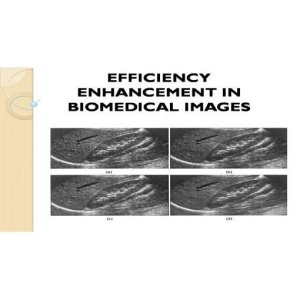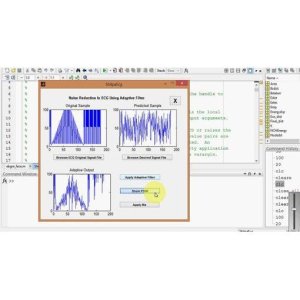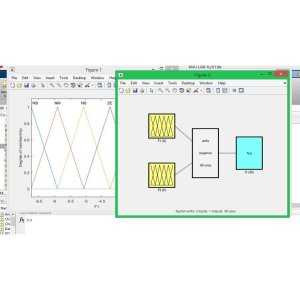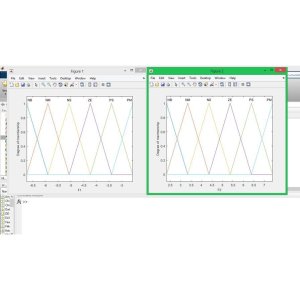Enhanced Energy Efficiency in WSN: A Genetic Algorithm Approach This project focuses on increasing the lifetime of Wireless Sensor Networks (WSNs) by reducing energy consumption through the utilization of Genetic Algorithm. By designing a code that leverages the power of this algorithm, the goal is to create a more energy-efficient network. The algorithm is applied to select the optimal cluster head, ultimately extending the network's lifetime. A comparison code is also developed to evaluate the performance of the Genetic Algorithm against the LEACH algorithm, a standard benchmark for WSNs. The implementation is carried out in MATLAB, providing insights on network setup, node status, energy levels, and throughput.
Problem Definition
Wireless Sensor Networks (WSNs) face a critical challenge in terms of energy consumption. These networks are often deployed in remote or hard-to-reach locations, making it impractical to regularly replace their batteries. As a result, WSNs have limited network lifetimes due to high-energy consumption, hindering their performance and overall functionality. To ensure the continued application and effectiveness of WSNs across various domains, it is crucial to address the issue of energy efficiency. By developing solutions that optimize energy use, network lifetimes can be extended, enhancing the reliability and effectiveness of WSNs in real-world applications.
The use of MATLAB software provides a powerful platform for implementing and testing energy-efficient algorithms to improve the performance of WSNs and address the key limitations and pain points in the domain.
Objective
The objective of the proposed work is to address the challenge of high energy consumption in Wireless Sensor Networks (WSNs) by utilizing the Genetic Algorithm to optimize cluster head selection. By developing a code that implements this algorithm, the goal is to significantly improve network lifetime while reducing energy consumption. The use of MATLAB software allows for detailed analysis and comparison with the well-known LEACH protocol, demonstrating the efficiency and practicality of the proposed approach in enhancing the performance of WSNs.
Proposed Work
The proposed work aims to address the issue of high energy consumption in Wireless Sensor Networks (WSNs) through the utilization of the Genetic Algorithm. By developing a code that leverages the power of this algorithm, the objective is to enhance network lifetime significantly with reduced energy consumption. The rationale behind choosing the Genetic Algorithm lies in its ability to optimize cluster head selection, ultimately leading to a more energy-efficient network. To validate the effectiveness of the proposed approach, a comparison code will be developed to assess the performance against the well-known LEACH protocol. The choice of implementing the Genetic Algorithm and comparing it with the LEACH protocol in MATLAB is strategic.
MATLAB provides a robust platform for executing complex algorithms and analyzing data effectively. By running the code in MATLAB, detailed results can be obtained, including network setup, dead nodes, alive nodes, remaining energy, and throughput. Through this project, the research goal is to demonstrate the efficiency and practicality of the proposed code in enhancing network lifetime while reducing energy consumption in WSNs, thus contributing to the advancement of this field.
Application Area for Industry
This project can be utilized in various industrial sectors such as agriculture, environmental monitoring, healthcare, smart cities, and infrastructure management. In agriculture, for instance, the efficient energy use in Wireless Sensor Networks (WSNs) can help farmers monitor crops and soil conditions, leading to optimized irrigation and increased crop yields. In healthcare, WSNs can be used for remote patient monitoring and emergency response systems, ensuring timely medical assistance. Additionally, in infrastructure management and smart cities, energy-efficient WSNs can enhance the monitoring of bridges, roads, and buildings, improving maintenance and safety measures. By implementing the proposed solutions using the Genetic Algorithm in MATLAB, industries can tackle the challenge of high-energy consumption in WSNs, ultimately increasing network lifetimes and overall performance.
The benefits of utilizing these solutions include prolonged network operation, cost savings due to reduced battery changes, improved data collection accuracy, and enhanced decision-making capabilities across various industrial domains.
Application Area for Academics
This proposed project has the potential to enrich academic research and education in the field of Wireless Sensor Networks (WSNs) by addressing the critical issue of high energy consumption. By using the Genetic Algorithm to optimize cluster head selection and improve energy efficiency, researchers can explore innovative methods to extend network lifetimes and enhance overall performance. The use of MATLAB and algorithms such as the Genetic Algorithm and LEACH provides a hands-on learning experience for students and researchers in understanding and implementing advanced techniques in WSNs. The project's focus on energy-efficient network design and comparison with existing algorithms offers a valuable opportunity for academic institutions to conduct research and training in this area. Researchers, MTech students, and PhD scholars can leverage the code and literature from this project to further their work in WSNs, data analysis, and optimization techniques.
By studying the outcomes and implications of the Genetic Algorithm in improving energy efficiency, they can explore new avenues for research and experimentation within their specific domains of interest. In the future, this project could be expanded to include additional algorithms and optimization strategies, opening up possibilities for interdisciplinary collaboration and practical applications in various industries. The ongoing development and refinement of energy-efficient solutions in WSNs will contribute to advancements in technology and data analysis, benefiting academic research, education, and training in diverse fields.
Algorithms Used
The project utilized the Genetic Algorithm, an optimization algorithm based on the principles of genetics and natural selection, to select optimal cluster heads, reducing energy expenditure. It also employed the LEACH (Low-Energy Adaptive Clustering Hierarchy) algorithm, a routing protocol in WSNs for comparison of results. This work uses a coding approach to resolve WSN's high energy consumption issues via the Genetic Algorithm. By designing a code to leverage this algorithm's power, it aims to create a more energy-efficient network, thereby extending its life. The algorithm is implemented to choose the optimal cluster head to increase the lifetime of the network.
Furthermore, a comparison code is developed to compare the genetic algorithm's performance with a standard benchmark, the LEACH algorithm. The code is executed in MATLAB, producing results regarding network setup, dead nodes, alive nodes, remaining energy, and throughput.
Keywords
SEO-optimized keywords: Wireless Sensor Networks, Energy Consumption, Network Lifetime, Genetic Algorithm, LEACH Algorithm, Cluster Head, Optimization, MATLAB, Code Design, Comparison Code, Alive Nodes, Dead Nodes, Remaining Energy, Throughput, Network Setup.
SEO Tags
Wireless Sensor Networks, Energy Consumption, Network Lifetime, Genetic Algorithm, LEACH Algorithm, Cluster Head, Optimization, MATLAB, Code Design, Comparison Code, Alive Nodes, Dead Nodes, Remaining Energy, Throughput, Network Setup, PHD Research, MTech Student, Research Scholar.
| Shipping Cost |
|
No reviews found!




















































No comments found for this product. Be the first to comment!